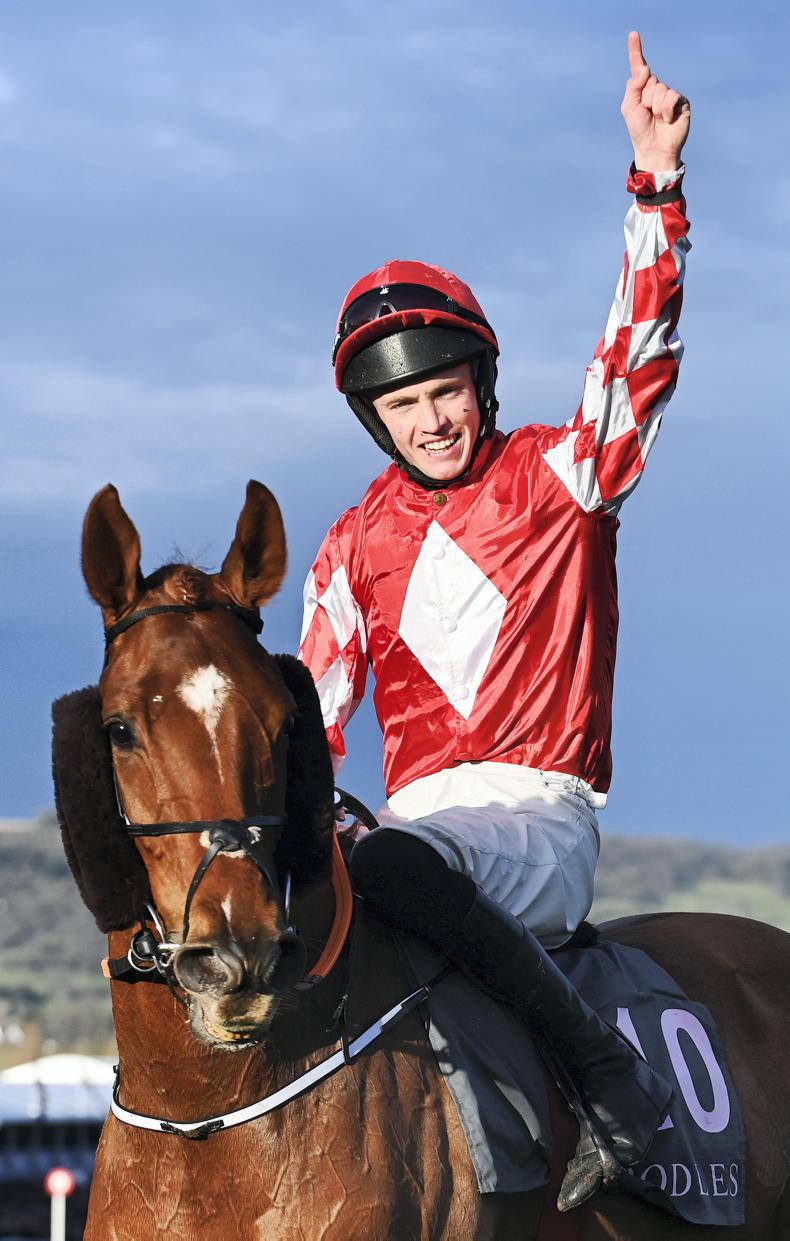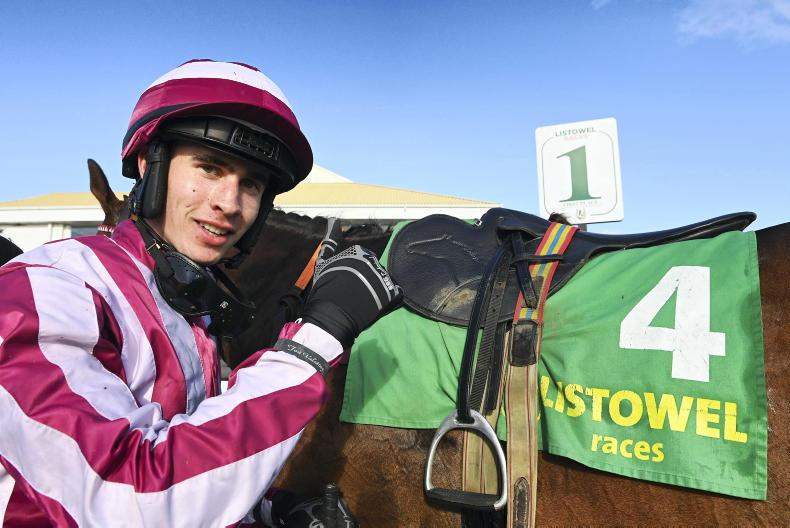In November, Betfair launched its one-of-a-kind charity initiative, the ‘Rachael Blackmore - Serial Winners Fund’, to benefit both the Injured Jockeys Fund and Irish Injured Jockeys. The fund currently stands at £160,000 and is expected to reach £250,000 by Grand National Day, Saturday, April 13th, when the fund will draw to a close. This weekly column seeks to shed some light on how jockeys have, and will continue to benefit from, the work the IIJ and the IJF do, and some of the services this contribution will support.
Tell us about an experience where mental strength played a crucial role in overcoming a challenging situation in your career to date.
Day to day as a professional jockey comes with many ups and downs. As you get older and gain more experience you learn to take things better, most importantly you learn not to get too low or too high.
While point-to-pointing I had many injuries, I broke my collarbone three times. After the first time I broke it I spent four weeks rehabbing and in my first week back I broke it again. Keeping motivated while rehabbing and on the sidelines is really challenging.
How do you maintain focus and stay resilient amid all the highs and lows?
Remaining level-headed in racing is hugely important and you’re always thinking about the next day. Whenever you pass the finish line you are straight away thinking of the horse’s future and where you’re going to go next with them. This prevents you from dwelling too long on your performance and wondering how you would ride him differently, et cetera. It’s vital to always look forward and to never rest on your laurels.
What techniques do you use to manage stress and pressure before and during a race?
Preparation before a race is key. Usually I study all the horses in the race, their form and how they have been ridden before. As well as this I research how previous runnings of the race were run and how the winners were ridden.
The minute I’m on the horse in the parade ring I don’t really feel any stress. I rely on my instincts and feel a lot more comfortable once I have done my homework beforehand.
How has the ability to bounce back from disappointments contributed to your overall success as a jockey?
It all comes down to experience, racing is a cruel sport with lots of ups and downs. You could ride a big winner and have a fall in the next race.
Mediating yourself comes with experience, racing is an individual sport not a team sport so you really are on your own, it’s important not to get too high or too low and to focus on the next race.

Are there specific mental exercises or routines you practice to enhance your mental strength?
I like to keep a routine, I usually eat and drink the same stuff throughout the day. I like to ride out in the morning before race meetings. If I have time, I like to run the track, then come back to organise my stuff.
I like to visualise a big race beforehand. I visualise everything from the start to the finish of a race, how I’d ride my horse and where the other horses are around me.
I also go to the gym, stretching and lifting weights about three times a week. Afterwards I get into the sauna and the pool, as they are good to relax the muscles.
Can you recall a race where maintaining a positive mindset was pivotal to winning?
There is no particular race that stands out in my memory. It’s very important to maintain a positive mindset for every race and to ride to your potential in every race, you have to ride off your instincts. It’s vital that you do what you think is right at the time.
How do you handle the weight of expectations, both from yourself and others?
I’d definitely put pressure on myself. There is nobody harder on me than myself. I like speaking to the older lads in the weighroom and some retired jockeys who have been through it all before. It is important to have the right people around you and to listen to the right people. As racing is an individual sport, every race you ride in you feel pressure on yourself. Of course you feel pressure from others but everyday you are trying to prove to yourself that you are worthy of all the opportunities you are given.
Are you a naturally confident person or is that something you have to work hard at?
I wouldn’t say that I’m naturally confident, but I am quietly confident in my own abilities as a rider. I believe that I could do as good a job as anyone else in the weighroom. In terms of speaking to the media, I don’t have an issue with it, but it is something that comes with experience.
What do you do to switch off?
I like to go to the gym a few nights a week and relax afterwards. To relax I love to watch any sport like Premier League, F1, Six Nations and GAA. I have also been watching a bit of Love Islandat the moment which takes up an hour a night. We get our holidays in June and it’s nice to get away for a couple of weeks.
What message would you give to someone who is struggling to cope with pressure or disappointment in their professional life?
I would say work hard and surround yourself with successful people. At the end of the day the only person that will make you successful is yourself. Always set high standards of yourself and treat disappointment as a good thing and improve on the back of it. If you feel pressure it means you care about it and that’s a good thing, as long as you don’t let it get the better of you.
Have you ever availed of support from the Injured Jockeys Fund or Irish Injured Jockeys?
Yes I have, I’ve been injured five or six times and five of those times were as an amateur, they are hugely important for amateurs and professionals alike. Injured jockeys would be lost without them. Dr Jennifer Pugh is always there at the other end of the phone ready to help straight away. Dr Adrian McGoldrick has been a massive help to me before as well.


 This is a subscriber-only article
This is a subscriber-only article
 It looks like you're browsing in private mode
It looks like you're browsing in private mode










SHARING OPTIONS: